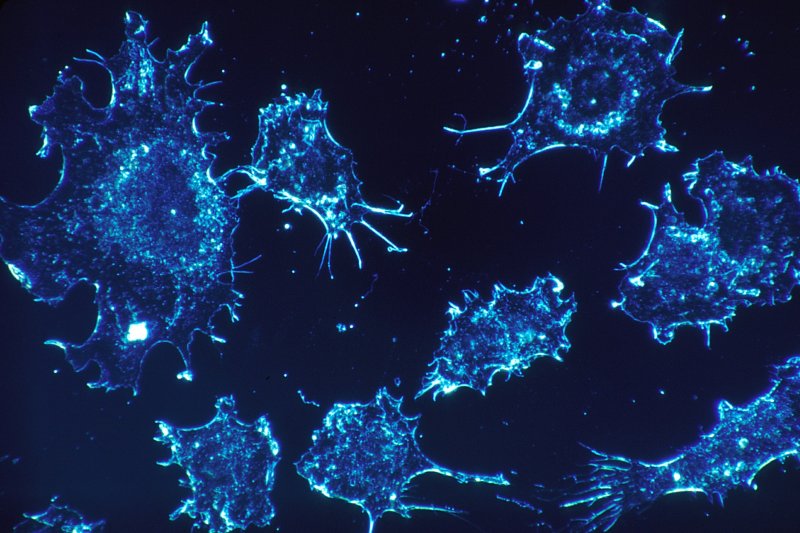A new anti-cancer drug puts cells to sleep by stopping tumor growth and spreading while not damaging their DNA, according to blood and liver cancer models. Photo by skeeze/
Pixabay
Aug. 2 (UPI) -- Researchers have developed a new anti-cancer drug that puts cells to sleep by stopping tumors from growing or spreading while not damaging their DNA.
These new treatments, which have been tested in blood and liver cancer models, could be an alternative method for people with cancer, including delaying cancer relapse. Researchers with the Walter and Eliza Hall Institute of Medical Research in Melbourne, Australia, published their findings Wednesday in the journal Nature.
"Rather than causing potentially dangerous DNA damage, as chemotherapy and radiotherapy do, this new class of anti-cancer drugs simply puts cancer cells into a permanent sleep," Dr. Anne Voss, an associate professor at the institute, said in a press release. "This new class of compounds stops cancer cells dividing by switching off their ability to 'trigger' the start of the cell cycle."
She said the technical term is cell senescence. "The cells are not dead, but they can no longer divide and proliferate," Voss said. "Without this ability, the cancer cells are effectively stopped in their tracks."
The researchers investigated whether inhibiting KAT6A and KAT6B proteins -- known to play an important role in developing cancer -- could be a new treatment method.
"Early on, we discovered that genetically depleting KAT6A quadrupled the life expectancy in animal models of blood cancers called lymphoma," said Dr. Tim Thomas, an associate professor at the institute. "Armed with the knowledge that KAT6A is an important driver of cancer, we began to look for ways of inhibiting the protein to treat cancer."
KAT6A is No.12 on the list of genes most commonly amplified in cancers.
The scientific community had coined the gene family "undruggable," according to Jonathan Baell from the Monash Institute of Pharmaceutical Sciences in Australia.
But the drugs were well tolerated and they don't affect healthy cells.
Current treatments -- chemotherapy and radiotherapy -- cause irreversible DNA damage. Cancer cells can't repair this damage. In addition, there are side effects, such as nausea, fatigue, hair loss and susceptibility to infection, as well infertility and increased risk of other cancers developing.
The treatment had shown great promise in preclinical testing, the researchers said.
"There is still a lot of work to be done to get to a point where this drug class could be investigated in human cancer patients," Voss said. "However our discovery suggests these drugs could be particularly effective as a type of consolidation therapy that delays or prevents relapse after initial treatment."















